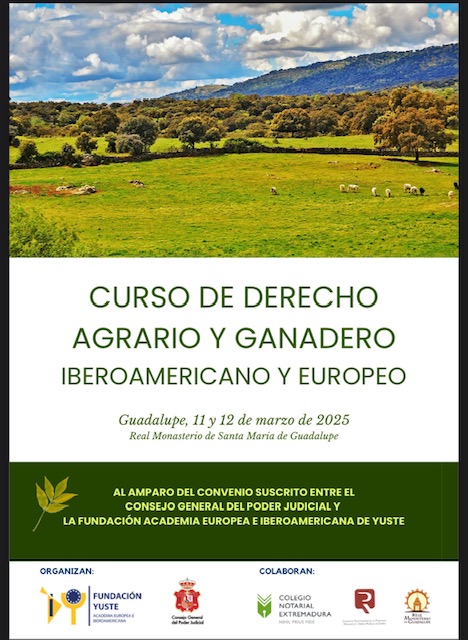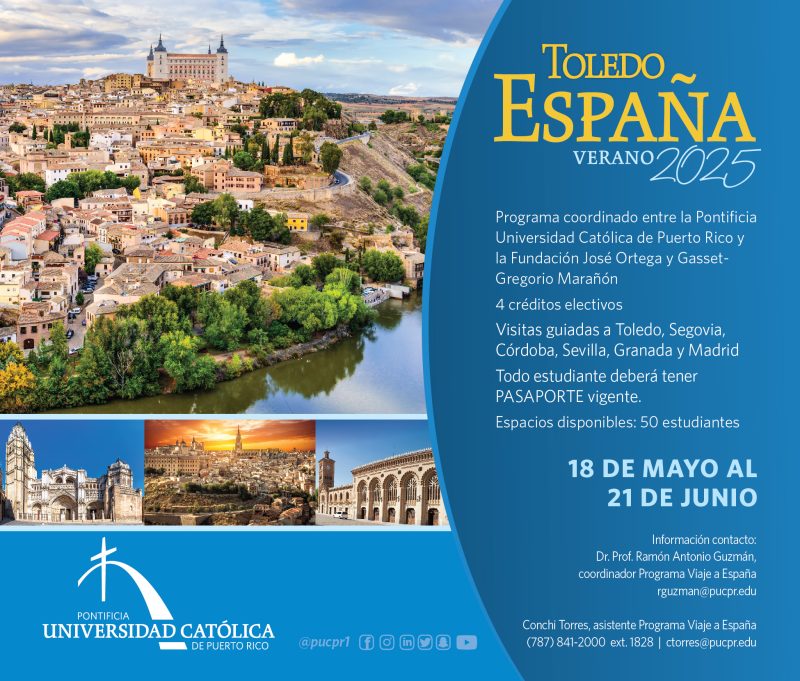Marielys Padua Soto – Estudiante de la Escuela de Derecho de la PUCPR
Latin is a very ancient and memorable tongue. It is the mother of the romance languages we know and use today. Italian, Spanish, Romanian, Portuguese, and French are all descendants of this beautiful tongue, now considered dead. Its application and its influence has been very broad throughout history, and it still has a very strong presence in many fields of knowledge. Latin is known as the language of the church, the language of lawyers, and the language of scientists. In the legal field, lawyers often employ Latin terms such as pro bono, ab initio, vis a vis, ultra vires, nulo ab initio, inter vivos, scintilla, erga omnes, nolo contendere, de novo, ex parte, mandamus, res ipsa loquitur, certiorari, prima facie, and others in order to add precision and depth to their arguments. On the other hand, Latin is employed in biological taxonomy for the nomenclature of species. Canis lupus, Felis domesticus, Equus ferus, angio, biceps femoris, vena cava, rigor mortis, corpus luteum, ileum, aqua, hydro, diplo, entomo, helix, leuco, omni, toti, ecto, exo, geo, and others are also examples of biological terms in Latin used to define species, human body parts and words. As you can see, the use of Latin in the legal and scientific realms is very broad and it enriches and empowers its professionals with a higher cultural background.
Historically, Latin spread with the expansion of the Roman Empire, becoming the dominant tongue of Western Europe. Surprisingly, it was sermo plebius, Vulgar Latin, the tongue of the uneducated classes, and not sermo cotidianus, the speech of the polite society, that evolved into the romance languages. Latin continued to be the language of scholarship and diplomacy until the 18th century and of Roman Catholic liturgy until the late 20th century. Throughout the years, Latin has proven to be an effective vehicle for serious thought (Lynn Macbeth, Are you a Latin Lover? The Lawyers Journal, 2002). Its use by lawyers to express specific legal concepts and principles and its use by the scientific community to identify and name important discoveries exemplify how important it is for any professional to learn Latin. There is oftentimes no suitable modern English word available to replace a legal or scientific expression in Latin.
Despite the importance of Latin, the Plain English Movement was proposed in 1970. The premise behind this movement was that legal documents ought to be plainer and more comprehensible to the average person. Objections were raised to the obscurity of the language of the legal community. The first major struggle occurred in England. The non-legal community wanted legal texts to be written in English, the language of the people, rather than in French or in Latin. The problem largely arose when William, Duke of Normandy, defeated the Anglo-Saxon king Harold at the Battle of Hastings in 1066 and became king of England. William and his followers spoke a type of French. The vast majority of the English people had always been English speakers. Unhappiness about this state of affairs led to what might be considered the first plain English law. The Statute of Pleading, enacted in 1362, written in French, recited that French was much unknown in the realm and it therefore required that all pleas be “… pleaded, shewed, defended, answered, debated, and judged in the English Tongue” (Joseph Kimble, Plain English: A Charter for Clear Writing, 9 Cooley L. Rev. 1, 1992). Today, this movement has been adopted as the Plain Language Movement in order to exclude Latin from any native speaking tongue in which legal terms are written. However, the use of Latin among lawyers and scientists should not decline in favor of the Plain Language Movement.
As a matter of fact, legal and scientific languages create an in-group sense because people outside of the legal and scientific communities do not readily understand the arguments of the profession. As Lawrence Friedman argues: “…specialized vocabulary helps [to] enforce a group feeling within the profession” (Peter Macleod, Latin in Legal Writing: An Inquiry into the Use of Latin in the Modern Legal World, 39 B.C. L. Rev. 235, 1997). A professional language also creates a barrier that prevents non-lawyers and non-scientists from easily penetrating the scholar community. To enter the legal or scientific realms, nonlawyers and non-scientists must learn the language. Thus, community identity influences the use of the Latin language. Moreover, Walter Armstrong argues that “…lawyers use [a] language that is incomprehensible to non-lawyers because of the need to be precise” (Walter Armstrong, In Defense of Legalese, 1992). One cannot rescind from the use of Latin simply because it appears as complicated to people outside of the legal and scientific communities. One must remember that the use of Latin in the legal and scientific realms is not only necessary, but it enriches and empowers its professionals with wisdom.
In conclusion, the legal language has traditionally been a very special variety of language. Mysterious in form and expression, it is heavily embroidered with Latin, heavily dependent on the past, and unashamedly archaic. Antiquated words and phrases flourish, but those of the legal profession who believe in archaic language may, si vis, use Latin to exemplify its beauty and its historical importance.



